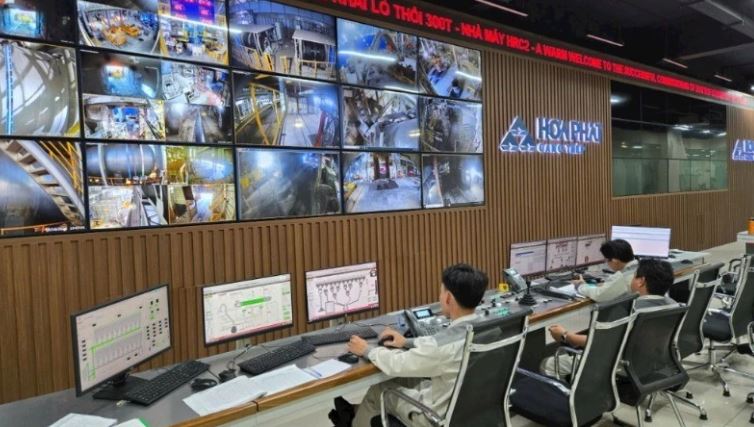 |
| Production control room at Hoa Phat Dung Quat Iron and Steel Production Complex (Quang Ngai). (Photo: MINH DUNG) |
The event demonstrates the Government's determination to listen to opinions and recommendations on policies and solutions for private economic development, while affirming the Party and State's strong commitment to enhancing the role of this sector.
This is considered an important driving force and great encouragement for the business community, contributing to promoting rapid and sustainable socio-economic development, soon bringing Vietnam closer to the goal of becoming a powerful and prosperous nation.
Historical turning point
Sharing with us on the sidelines of the discussion, Chairman of the Vietnam Chamber of Commerce and Industry (VCCI) Pham Tan Cong expressed the excitement and unprecedented joy of the business community when Resolution No. 68-NQ/TW was issued. “This is a historic turning point, a period of momentum when the Party has affirmed the important role of the private economy in the cause of national development. The Party has also shifted from removing difficulties and supporting situations to proactively creating a long-term development environment, opening a new era for the private economy. Enterprises are particularly pleased with the specific and practical policies in Resolution No. 68-NQ/TW such as: Exemption of business license tax, exemption of income tax for the first 3 years for newly established enterprises, reducing the frequency of inspections and examinations to once a year or implementing online inspections,... Perhaps this is the first time a Party resolution has put forward such specific and practical policies for enterprises,” Mr. Cong emphasized.
According to Mr. Cong, these solutions not only effectively support small and medium enterprises but also create favorable conditions for innovative startups. Another highlight of the resolution is the humanistic mindset when shifting from “management to control” to “management to serve”, considering businesses as companion partners “supporting for recovery”.
In particular, the resolution has also resolved difficult, sensitive, and complicated issues such as not criminalizing economic relations. Therefore, the Vietnamese business community has a common opinion that Resolution No. 68-NQ/TW not only brings immediate benefits but also lays a solid foundation for the long-term, stable, and safe development of the private economy.
Resolution No. 68-NQ/TW has shown unprecedented breakthroughs in concepts and thinking in private economic development. After only 12 days, the Government quickly issued Resolution No. 138/NQ-CP and Resolution No. 139/NQ-CP in succession; the National Assembly issued Resolution No. 198/2025/QH15 with requirements, tasks and progress of building, completing, and implementing policies clearly stated to institutionalize Resolution No. 68-NQ/TW. This is an unprecedented step forward, demonstrating the determination and synchronization of the Party and State in supporting and developing the private economic sector. Chairman of Vietnam Association of Small and Medium Enterprises (Vinasme) Nguyen Van Than |
Chairman of the Vietnam Association of Small and Medium Enterprises (Vinasme) Nguyen Van Than affirmed that Resolution No. 68-NQ/TW has shown unprecedented breakthroughs in concepts and thinking in private economic development.
After only 12 days, the Government quickly issued Resolution No. 138/NQ-CP and Resolution No. 139/NQ-CP in succession; the National Assembly issued Resolution No. 198/2025/QH15 with requirements, tasks, and progress of building, completing, and implementing policies clearly stated to institutionalize Resolution No. 68-NQ/TW. This is an unprecedented step forward, demonstrating the determination and synchronization of the Party and State in supporting and developing the private economic sector.
Chairman of the Board of Directors of Hop Luc Joint Stock Corporation Nguyen Van De shared: “Resolution No. 68-NQ/TW is like a torch lighting the way, creating new momentum and motivation for private enterprises to be more confident in conquering the country's development goals. The orientation and guiding viewpoints stated in the resolution are expected to remove barriers, creating more favorable and safer conditions for business, investment and development.”
It can be seen that, since Resolution No. 68-NQ/TW was issued, the business community has expressed great expectations for a real "revolution" in institutional and policy reform, creating a more equal and favorable business environment for the private economic sector to contribute more to the country's economy. Many opinions also say that, although the "platform" has been built, the current key task is to institutionalize these important resolutions into specific mechanisms and policies that are highly feasible in practice.
Specifically, Mr. De suggested that in order to accelerate the development of private hospitals to serve the community, the State needs to quickly narrow the gap between central directives and local implementation, and "remove" bottlenecks from the awareness of implementing officials, especially at the local level. Land allocation to enterprises needs to be further facilitated, because currently, land for medical purposes must be auctioned and bid, causing difficulties for localities...
Quickly concretize policies
Chairman of the Vietnam Association of Construction Contractors (VACC) Nguyen Quoc Hiep said that moving from awareness to concrete action is a process that requires the participation of all levels of government. Resolution No. 68-NQ/TW clearly states that each enterprise will only be inspected once a year if necessary.
However, if it is not specified and clearly stated which agency coordinates the inspection and examination work, there will still be overlapping inspections, causing businesses to waste a lot of time, especially in areas such as: Tax, land management, construction or fire prevention and fighting, etc.
Enterprises are considered as objects of service instead of objects of management, which is something that the business community is very fond of. However, how to implement it still requires a revolution to change the thinking and awareness of current civil servants.
Citing the shortcomings and difficulties that businesses actually encounter, Mr. Hiep shared: “Just asking for guidance from ministries and branches, there are some things that take up to seven months to receive a response, but it is also unclear because the document does not go straight to the point, only citing the law and requiring localities to apply the regulations correctly. If it were a service perspective, businesses would certainly receive a response sooner.”
Therefore, Mr. Hiep recommended that every six months, localities organize meetings with businesses in the area in each field to give feedback to the government on administrative procedures that need to be learned from and changed to improve the effectiveness of management and operation.
Chairman of the Vietnam Plant Seed Trade Association Tran Manh Bao also reflected that access to land policies for plant variety research and development still has many obstacles, lengthy procedures, and no separate legal framework for businesses using land for research, testing, selection, and production purposes.
This makes it impossible for many businesses to expand their production and business because land is the most important foundation in agricultural production and also the condition that determines the success of a project. In addition, access to financial resources, preferential loans, and tax mechanisms, although there are policies, in reality there are still many barriers, not really "open" for businesses to easily access.
Obviously, the resolutions of the Politburo, the Government, and the National Assembly have been synchronized and complete, bringing a "new breeze" to the private economic sector, but the current problem is how to organize and implement it effectively with the spirit of "thinking deeply and doing big", arousing the spirit and promoting the best capacity of nearly 1 million enterprises and 5 million business households in Vietnam.
It is necessary to quickly review, reduce and substantially simplify inappropriate business conditions and administrative procedures that are still too formalistic and unclear, causing difficulties for businesses. VCCI Chairman Pham Tan Cong |
Therefore, VCCI Chairman Pham Tan Cong recommended that it is necessary to quickly review, reduce and substantially simplify inappropriate business conditions and administrative procedures that are still too formalistic and unclear, causing difficulties for businesses.
The Government needs to assign the task of developing enterprises and attracting private investment as one of the top important tasks of the government apparatus at all levels; make supporting and developing private enterprises an important criterion to evaluate the level of task completion of ministries, branches and local governments.
Along with that, the business community also needs to proactively transform itself, effectively take advantage of the opportunities brought by the resolutions to build a long-term vision, effectively exploit internal resources, constantly innovate business models and promote innovation.
Only when the State and enterprises work together, and institutions and reality develop synchronously, will Resolution No. 68-NQ/TW truly come into life, spread, and create strong momentum for the private economy to "take off" and reach far, contributing to building an independent, self-reliant and successfully integrated Vietnamese economy with a spirit of solidarity and unanimity. This is also the "golden key" to open the door to bring the Vietnamese economy towards sustainable development in a new era of strength and prosperity.
Source: https://huengaynay.vn/kinh-te/tao-luong-sinh-khi-moi-trong-kinh-te-tu-nhan-154237.html
















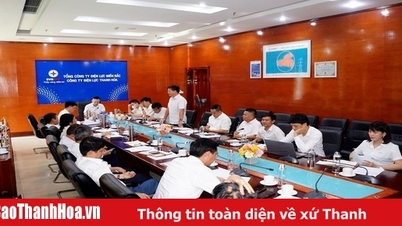







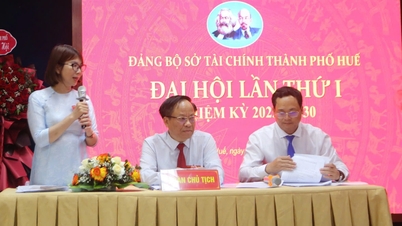
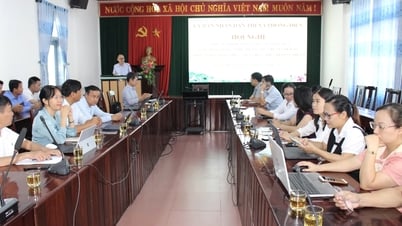
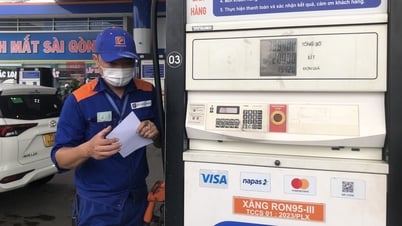
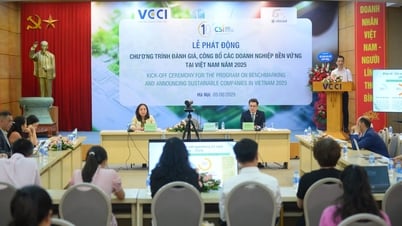
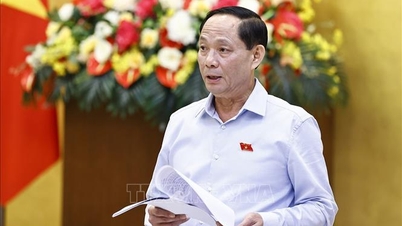
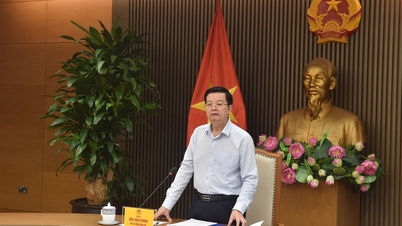












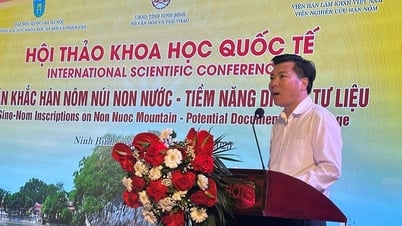
























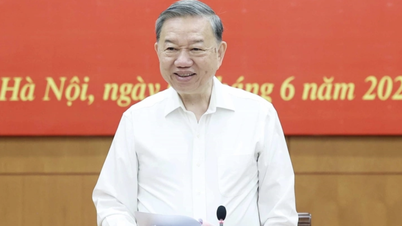














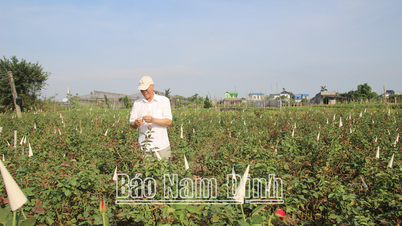


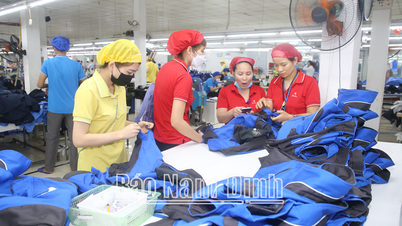












Comment (0)